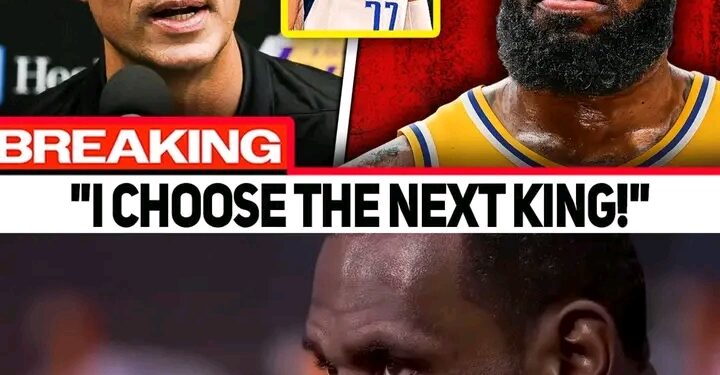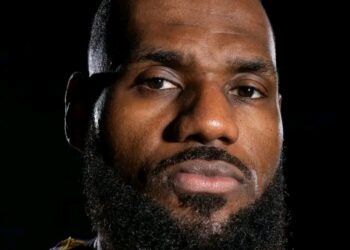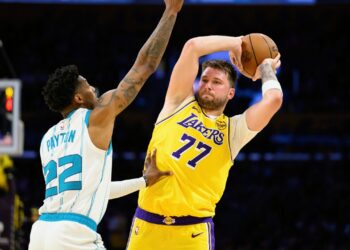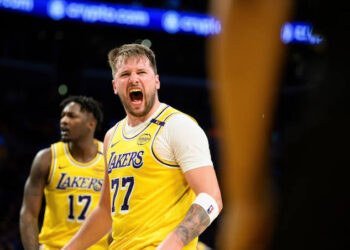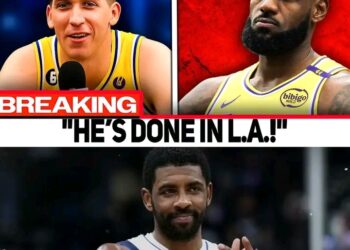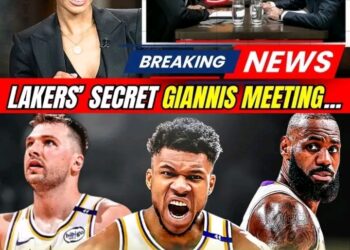The Beginning of the End for the King?
For more than twenty years, LeBron James has been the face of the NBA — a symbol of greatness, longevity, and control. From “The Chosen One” to four-time champion, he has built an empire defined by both dominance and narrative. But now, at 40, that empire seems to be showing cracks.
The 2025 NBA All-Star Game was supposed to be another crowning moment for LeBron — his 21st consecutive appearance, a record unmatched in league history. Instead, he pulled out just an hour and a half before tipoff, citing “foot and ankle soreness.” Many didn’t buy it. Theories quickly spread: was it injury, or insecurity?
Former player Chandler Parsons voiced what others only whispered:
> “All these other players are facing the next generation — including his son. Why can’t LeBron do the same?”
The withdrawal marked more than just an absence; it symbolized a turning point. For the first time since 2004, the All-Star Game went on without LeBron James — and the league didn’t stop. The whispers of decline grew into open conversations about his fading power.
Lakers Choose the Future Over the Legacy
Behind the scenes, an even bigger shift was underway. LeBron had reportedly requested a modest one-plus-one contract extension this summer — a short deal that would give him flexibility to decide his own exit. The Lakers declined to even discuss it.
Instead, Rob Pelinka and the front office offered a $165 million contract to Luka Dončić, signaling that the franchise’s future rests with a new superstar.
Pelinka’s carefully worded statement said the team wanted to give LeBron “absolute respect to choose his story.” Translation? The Lakers are moving on.
For the first time in his storied career, LeBron is playing on an expiring contract. Once, his word was law — he could dictate rosters, influence trades, and shape organizations. Now, his own franchise is ready to let him walk.
The Narrative Slips Away
The ripple effect extends beyond Los Angeles. Younger stars — once awed by LeBron — are no longer intimidated. They challenge him, outplay him, and, in some cases, ignore him. His aura of untouchable greatness has started to fade.
Even Bronny James, LeBron’s eldest son and now an NBA rookie, has been caught in the storm. Many around the league believe Bronny’s roster spot owes more to his father’s influence than merit. Declined appearances in the Rising Stars Game and the Father-Son Skills Challenge haven’t helped his image — or LeBron’s.
Critics argue the family brand, once unshakable, is beginning to erode.
History Repeats Itself
The cracks in LeBron’s mythos didn’t start today. His 2011 Finals collapse against the Dallas Mavericks, when Jason Terry outperformed him in crunch time, remains a stain on his résumé. Though LeBron bounced back with titles in Miami, Cleveland, and L.A., that memory lingers — proof that even greatness can stumble.
And while his 10 NBA Finals appearances are historic, his 4–6 record remains a favorite talking point for skeptics. Comparisons to Michael Jordan’s 6–0 or Kobe Bryant’s 5–2 records often resurface when legacy debates reignite.
For years, LeBron has balanced that criticism by controlling his image — masterfully crafting the narrative around his career. But as the Lakers and the league move on, even that control is slipping.
The King’s Crown Is Tilting
The reality is clear: the Lakers no longer revolve around LeBron James. Luka Dončić’s new deal represents not just a change in direction, but a declaration — the torch has been passed.
The NBA, a league LeBron once ruled with absolute command, now belongs to a new generation of stars hungry to make their own mark.
LeBron’s greatness is undeniable. His records, his influence, and his longevity are unmatched. But Father Time remains undefeated, and for the first time, it feels like the King is running out of moves.
So, is this the end of LeBron’s story — or the setup for one final act of defiance?

